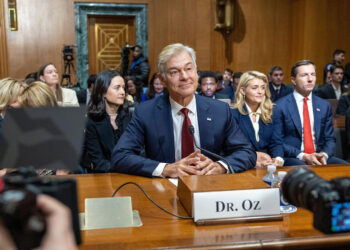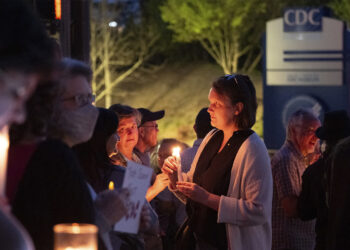Patients living in rural areas of North America may not receive guideline-concordant care because of diminished or accelerated access to surgery and lack of access to the full spectrum of treatment options for their conditions, new research suggested.

“Conditions for which there are treatment options that would involve specialty services like interventional radiology that are rare in rural environments may be logistically impossible for rural patients to access, so other, surgical, options are first line,” principal author Aaron Johnston, MD, associate dean of Distributed Learning and Rural Initiatives at the University of Calgary, Calgary, Alberta, Canada, told Medscape Medical News.
“The core issue is that rural Canadians have inequitable access to healthcare,” he said. “Rural physicians, family doctors, and specialists, do amazing work and meet the needs of their patients locally most of the time. However, some issues do need the support of urban specialists, and we should consider how the system can work to provide this support, smoothly and predictably, in the interest of equitable access to healthcare.”
The study was published online on January 3 in the Canadian Journal of Surgery.
Distributed Medical Education Needed
For their scoping review on how rurality affects access to surgery in North America and on barriers that preclude care comparable to that provided in urban settings, the researchers identified 13,897 studies and selected 71 that spanned a wide spectrum of surgical disciplines.
Despite their large numbers of rural communities, western Canada, northern Canada, and the midwestern United States were all underrepresented in the literature. Furthermore, no studies represented Mexico, highlighting a big evidence gap.
Of the included studies, 83% reported diminished and 17% reported accelerated access to surgery, whereas 30% reported an interaction between rurality and other social determinants of health, especially age, sex and gender, and race and ethnicity.
The findings suggest five factors that might contribute to diminished access: The impact of travel and distance barriers, access to primary care providers and resources, socioeconomic and insurance factors, technological and infrastructure limitations, and education and awareness issues.
Regarding improved surgical access, many authors hypothesized that because surgery often serves as definitive management, rural patients had improved access to surgery because they lacked access to adequate medical management, leading to an overreliance on surgical alternatives.
The study had several limitations, including its restricted focus on Canada and the United States, reliance on cross-sectional studies with varied definitions of “rural” and “urban,” potential for publication bias, and variations in healthcare policies and remuneration between Canada and the United States, which could influence the applicability and interpretations of the findings.
Nevertheless, the authors concluded, “Whether surgical access was diminished or accelerated, the net impact of rurality was a deviation from guideline-concordant care.”
Johnston noted that better distributed medical education — supporting rural faculty and building interest in rural healthcare research and delivery through education — could help.
“Distributed medical education has been focused on rural family medicine but needs to broaden its scope to also consider rural and regional specialty experiences in training,” he said. “Distributed specialty training, at both the medical student and resident levels, will likely increase the number of graduates who consider these careers and will increase the understanding of urban doctors about the particular issues that rural patients face in healthcare access.”
Patient Preferences

Matt Strickland, MD, assistant professor of surgery at the University of Alberta in Edmonton, Alberta, Canada, commented on the study for Medscape Medical News. Strickland was not involved in the current study but led an earlier study characterizing Canadian rural general surgeons and future demand.
“The findings reflect our experience treating patients from our vast geographic catchment area that includes both urban areas and extremely rural parts of the continent,” he said. “People who live in rural areas generally face barriers to accessing the full gamut of modern surgical care. In many cases, the cost to patients is travel time, increased expenses, or a more difficult, isolated recovery far from home.”
“However,” he added, “there are countless examples where the cost is increased morbidity or even an avoidable death.”
“What’s difficult to capture in some of these reports of guideline-discordant care is what the patients’ preferences were,” he said. “Having worked in rural and urban areas, I’ve seen different narratives play out.”
In rural areas, Strickland has treated patients who were happy to compromise on some aspects of their care to stay close to home and their support systems. On the other hand, he’s treated patients in urban areas who were disappointed with the care they received locally and grateful to have access to the specialists, equipment, and processes available in urban centers.
The specialty of general surgery “is looking carefully at this to make sure that our training programs are socially accountable, that we’re making new surgeons that can provide the services required by a small town,” he said.
“As individuals working in urban centers and examining the care provided in rural areas, we have to be mindful of the context and often vastly different healthcare resources available at those outside hospitals,” he said. “While I do see unfortunate deviations in the care provided in rural settings, I also see outstanding care and resourcefulness from rural colleagues.”
No funding for this study was reported. Johnston reported receiving travel support from the College of Family Physicians of Canada (CFPC). He also holds volunteer roles with CFPC and the Association of Faculties of Medicine of Canada. Strickland reported no relevant financial relationships.
Marilynn Larkin, MA, is an award-winning medical writer and editor whose work has appeared in numerous publications, including Medscape Medical News and its sister publication MDedge, the Lancet (where she was a contributing editor), and Reuters Health.
Source link : https://www.medscape.com/viewarticle/rurality-leads-deviations-guideline-concordant-care-2025a10001hx?src=rss
Author :
Publish date : 2025-01-22 12:10:32
Copyright for syndicated content belongs to the linked Source.














